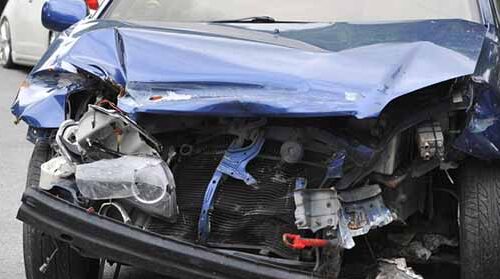Dealing with a write-off

The Financial Ombudsman deals regularly with complaint from people who believe their car has been undervalued by an insurer in the case of a write-off.
A car is considered a total write-off when it is no longer economical to fix it, where the cost of repair is higher than the value of the vehicle itself. However a car can also be considered an insurance write-off if for example, a car worth £4,000 requires £3,000 worth of repairs.
‘If your car is written-off, your insurer will offer you a settlement price, based on their view of the car’s market value at the time of the accident’, said Matt Oliver, spokesperson for Gocompare.com, ‘However, what many people don’t realise is that if you’re unhappy with this valuation you’re within your rights to challenge it. We’ve produced a guide to help people to understand the process of vehicle write-offs and how to negotiate a more favourable settlement.’
Gocompare.com Car Insurance has produced a five step guide to dealing with write-offs.
1. The four categories of insurance write-offs
Categories are determined by the extent of damage and are part of a code of practice by the Association of British Insurers (ABI), Driving Vehicle Licencing Agency (DVLA), Department for Transport, the British Vehicle Salvage Federation and the Association of Chief Police Officers.
Category A: Category A: Cars that have suffered damage so severe that they can only be sold for scrap and have their parts recycled, rather than resold. Claims for cars falling under this category include total burn-outs.
Category B: These cars have suffered extensive damage. They can be broken up for spare parts. Examples of cars falling into this category include old, low value damaged vehicles with no economically salvageable parts.
Category C: A car falling within this category could, in theory, be safely repaired. But, costs would exceed the pre-accident value of the vehicle.
Category D: The car could be repaired and made roadworthy, but the cost is deemed by the insurer too high relative to the car’s value.
Category A and Category B write-offs are broken-up for spares and the body shells crushed, so they can’t find their way back on to the road. Cars falling in categories C and D can be sold on by the insurance company.
2. The valuation of write-offs
An insurer’s assessment of a car’s market value is unlikely to be the same as you paid for it or the price you estimated when insuring it. Insurers usually pay-out the car’s ‘market value’ just before it was written-off, minus the policy excess.
3. Challenging your insurer’s decision
If, after factoring in depreciation, mileage and comparable values in motor trade guides/local dealerships for your car, you’re still dissatisfied with the compensation figure offered, you can challenge your insurer. You will also need to gather together details of anything else in support your claim, for example details of your car’s service history, evidence of new parts or tyres.
If you can’t reach agreement with your insurer you also have the option of referring your case to the Financial Ombudsman Service, which is independent and there is no fee for doing so.
4. You may have the option to buy back your car.
The car remains your property until the insurer settles the claim – at this point it becomes the insurer’s property. If you want to buy back your car, you need to tell you insurer at the earliest possible opportunity. It’s also sensible to inspect your car so that you have a better idea of what you’re considering paying for. It is then down to you to negotiate an acceptable deal.
If you then decide to sell the car in the future, by law you are obliged to declare its status as a Category C or Category D write-off.
5. Tips for buying a used, written-off car.
If you do your homework on the vehicle you could be bagging a bargain. A pre-sale vehicles check – such as those offered by the RAC or AA – will tell you whether a car is structurally and mechanically sound. As well as an HPI check which will tell you if the car has been stolen, has outstanding finance, has a mileage discrepancy or has been an insurance write-off.
Write-offs can increase the insurance of a vehicle so make sure you get several quotes to make sure the lower cost of the vehicles is wiped out by higher insurance premiums.
Read the full guide here.








